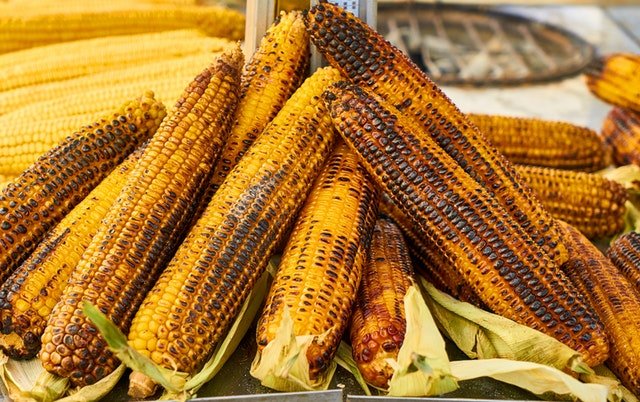It’s early corn (maize) season in Nigeria—the perfect time to indulge in fresh, roasted, or boiled corn, often enjoyed with African pear (ube) or coconut. A medium-sized ear of corn contains about 90 to 100 calories, making it an excellent snack choice for anyone on a weight loss journey.
Corn, also known as maize, is planted during the early rainy season and harvested later in the year. It’s a global staple food, loved for its versatility, sweet taste, and impressive nutritional benefits. Beyond being delicious, corn is packed with nutrients that promote overall health.
5 Health Benefits of Corn
1. Supports Digestive Health
Corn is rich in insoluble fiber, which helps add bulk to stools and prevents constipation. Its fiber also acts as a prebiotic, feeding healthy gut bacteria and supporting a strong digestive system.
2. Enhances Eye Health
Yellow corn is loaded with antioxidants like lutein and zeaxanthin, known to protect the eyes and reduce the risk of age-related macular degeneration and cataracts.
3. Promotes Heart Health
Corn oil contains phytosterols and polyunsaturated fats, which can help lower LDL (bad) cholesterol. Plus, the antioxidants in corn help fight inflammation, further supporting a healthy heart.
4. Provides Essential Nutrients
Corn is a good source of several important vitamins and minerals that support immunity, bone health, and overall vitality, including:
-
Vitamin C
-
Magnesium
-
Potassium
-
Folate
-
Vitamin A
5. Supports Weight Management
Thanks to its high fiber content and moderate calorie count, corn promotes fullness and can help curb overeating. It also provides protein, supporting muscle maintenance and boosting metabolism, making it a great addition to a weight loss plan.
Possible Side Effects of Eating Too Much Corn
While corn is nutritious, consuming it in excess may cause certain side effects, such as:
-
Blood Sugar Spikes: Corn’s high starch content can elevate blood sugar levels, which may be a concern for people with diabetes.
-
Digestive Issues: Too much fiber can lead to bloating, gas, or constipation, especially for those with sensitive stomachs.
-
Increased Calorie Intake: Overeating corn may contribute to excess calorie consumption, affecting weight management goals.
-
Allergic Reactions: Though rare, some people are allergic to corn, experiencing symptoms like hives, nausea, or even anaphylaxis.
-
Mycotoxin Risk: Corn that’s improperly stored can develop mycotoxins—harmful compounds that pose health risks.
Is It Healthy to Eat Corn Every Day?
Yes, you can enjoy corn daily—as long as it’s eaten in moderation. Opt for healthy preparations like boiling or roasting instead of frying. Limit added butter, salt, or sugar to keep your corn snack nutritious.
If you’re watching your carb intake, be mindful of portion sizes, since corn is a starchy vegetable. When incorporated into a balanced diet, corn can contribute essential nutrients and support a healthy lifestyle.






















